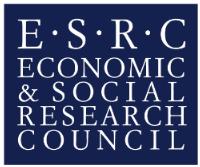Submitted by Sara Serradas Duarte on Fri, 23/03/2018 - 17:20
 About the research
About the research
Dr David Cantor's PhD research looked at the risks and challenges faced by internally displaced persons in Colombia, a country where currently seven million people are displaced due to armed conflict. Although Colombian law gives internally displaced people the right to return, Cantor found that most people that return go to active conflict zones, where they were often at risk of hostile action from as many as four different armed parties.
To protect themselves, their communities and their livelihoods, internally displaced people adopt a number of coping strategies. However, Cantor identified a number of areas where government actions and existing state laws would benefit from improvement. Additional funding from the ESRC helped Cantor build connections with the Colombian government, international and local bodies and NGOs, informing policies that could help returning individuals and protect them upon their arrival back in conflict zones.
In a second ESRC-funded study, Cantor looked at what institutions and laws Latin American states have to help them deal with the security and justice issues that arise as a result of cross-border migration. He characterised and analysed new forms of forced migration, occurring not from state persecution but from the activities of organised criminal groups, and from people fleeing natural disasters and climate change.
Fieldwork in El Salvador and Honduras showed that the combination of ferocious gangs and inadequate law enforcement in these countries has resulted in a severe refugee crisis. Only within the past five years tens of thousands of people have fled El Salvador, Guatemala and Honduras.
Impact
- Dr Cantor's finding that the displacement crisis in Honduras and El Salvador was caused by organised criminal gangs helped to ensure that this specific form of forced migration was included in the 2014 Brazil Declaration. This is the first international instrument to recognise and respond to this form of forced migration and was adopted by 28 Latin American and Caribbean governments.
- In Colombia, the findings of Dr Cantor fed directly into the 2011 Victims and Land Restitution Law. The law acts as the main framework for the protection of internally displaced people in Colombia, and formed part of the basis for the peace process between the government and rebel forces.
- Guidelines drafted by Dr David Cantor on how to protect people displaced by natural disasters or climate change were adopted by 11 North and Central American governments in November 2016, and represent the world's first-ever international framework specifically to promote action on 'climate refugees'.
- The guidelines also informed the Nansen Initiative's Agenda for the Protection of Cross-Border Displaced Persons in Natural Disasters and Climate Change, taken up by 109 governments in October 2015, as well as the MICIC Guidelines of the International Organisation for Migration in 2016 – both endorsed by the UN General Assembly in the September 2016 New York Declaration on Refugees and Migrants.
- Dr Cantor also developed a regional protection policy for refugees and migrants which was adopted in 2016 as the San José Action Statement by nine governments.
- He led and contributed directly to the formation of international and national strategy and policy on the protection of refugees, asylum-seekers and IDPs at regional level and in countries across the Americas through a year-long secondment during 2017-18 as the principal advisor to the UNHCR Americas Bureau.
Please find the source article here.


